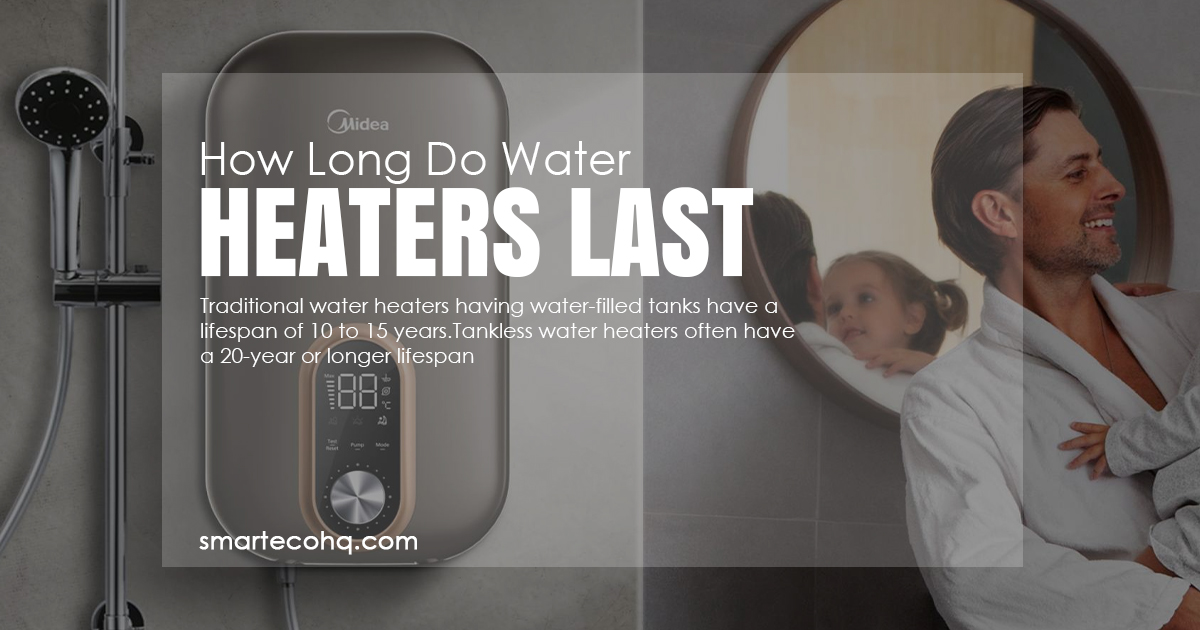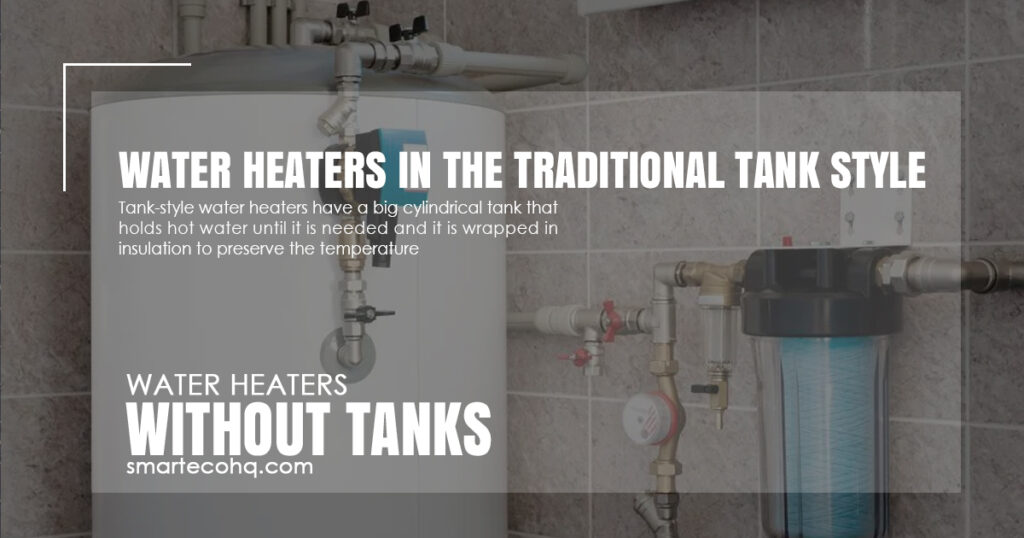How Long Do Water Heaters Last?

Looking to replace your water heater? Understand how long water heaters last and when to consider a new one.
How Long Do Water Heaters Last :
Tankless water heaters often have a 20-year or longer lifespan. Traditional water heaters having water-filled tanks have a lifespan of 10 to 15 years before showing signs of aging.
Water heaters are an important component of our daily life since they provide hot water for cooking, bathing, and cleaning. However, they, like other appliances, have a certain lifespan and will need to be updated at some point. In this blog post, we will look at how long water heaters survive, what factors influence their lifespan, and how to increase their longevity.
- The average Life Expectancy of a Water Heater is 8-12 years.
- Can Water Heaters Last 20 Years? Yes, with proper maintenance, some water heaters can last up to 20 years.
Types of Water Heaters
There are many types of water heaters:
- Water Heaters in the Traditional Tank Style
- Water Heaters Without Tanks
Water Heaters in the Traditional Tank Style
Tank-style water heaters have a big cylindrical tank that holds hot water until it is needed, and it is wrapped in insulation to preserve the temperature while minimizing heat loss.

- Huge cylindrical tank for hot water storage
- Run using either electricity or gas.
- Stocked in a variety of capacities that range from 20 to 100 gallons.
- Can provide hot water to numerous faucets and appliances at the exact same time
- Keep a smaller start-up cost than tankless heaters for water.
Highlights
- Affordable costs upfront
- Can provide hot water to numerous faucets and appliances at the same time
- Extremely available and simple to set up
Contrary
- A shortage of hot water
- Higher energy expenses as the consequence of tank heat loss
- Tankless water heaters have a shorter lifespan.
Water Heaters Without Tanks
Because there is no standby heat loss, tankless water heaters use less energy than traditional tank-style water heaters.
- The design is compact and wall-mounted.
- Works on either electricity or gas.
- There is no need for a storage tank because hot water is available on demand.
- Various sizes are available, depending on the amount of hot water required.
- Energy-efficient compared to standard tank-style water heaters
Highlights
- Never-ending hot water supply
- Energy-efficient compared to standard tank-style water heaters
- More deep life expectancy than standard tank-style water heaters
Contrary
- More High initial investment than standard tank-style water heaters
- More installation costs, like updating electrical or gas connections, may be required.
- If the demand for hot water exceeds the capacity of the unit, there will be insufficient supply.
Factors That Affect Water Heater Lifespan
Quality of Water
The hard water, which contains excessive amounts of minerals such as magnesium and calcium, can produce mineral accumulation in the tank, resulting in corrosion and decreased efficiency. If your water is hard, you must flush your tank on a regular basis to avoid mineral buildup.
Maintenance
Regular servicing of the water heater you use is required to extend its longevity. This entails flushing the tank, inspecting the anode rod, & confirming that the thermostat is operational.
Installation
Proper installation of a water heater is critical to its lifetime. If the setup isn’t performed correctly, leaks might occur, causing an impact on the tank and reducing its lifespan.
Utilized
The greater amount of hot water you consume, the harder the water heater needs to operate, thus shortening its lifespan. Furthermore, running without hot water on a regular basis might put a strain on the water heater and shorten its lifespan.
Water heaters have a time-limited lifespan that can be extended with regular maintenance, appropriate installation, and careful use. Flushing the tank, inspecting the anode end rod, and tracking water quality are all necessary, as are temperature management and decreasing hot water usage. By following these methods, you may enjoy warm water for a longer duration of time while avoiding costly replacements.
FAQs
1. How long does a typical water heater last?
The lifespan of a water heater depends on the type, quality, installation, maintenance, and the water quality in your area. On average, a traditional tank-style water heater lasts between 8 to 12 years, while tankless water heaters can last up to 20 years or more.
2. What factors affect the lifespan of a water heater?
Several factors can affect the lifespan of your water heater. These include the quality of the installation, regular maintenance, the hardness of your water, and how much the water heater is used. Properly maintained water heaters tend to last longer.
3. How can I extend the lifespan of my water heater?
Regular maintenance can significantly extend the lifespan of your water heater. This includes annual flushing to remove sediment build-up, checking the pressure relief valve, inspecting the sacrificial anode rod, and adjusting the thermostat to an optimal temperature (usually between 120-140 degrees Fahrenheit).
4. How will I know when to replace my water heater?
Common signs that your water heater may need replacing include: if it’s older than 10 years, there’s rusty water coming out of the faucet, frequent repairs are needed, there’s a metallic taste or smell in the water, or if the tank is leaking.
Conclusion
Water heaters are an essential component of any home, providing hot water for cooking, cleaning, and bathing. The lifespan of a water heater can vary greatly depending on its type, quality, installation, and how well it is maintained. Regular maintenance, including flushing the system and inspecting critical components, can greatly extend the life of your water heater. If you notice any signs of malfunction, such as rusty water or leaks, it may be time to consider replacing your water heater.




